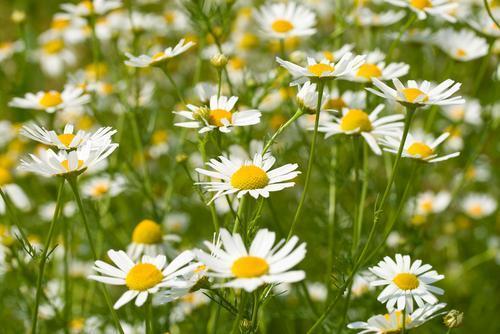
Anise Hyssop
You can have a 24 hour pharmacy right outside your door: a plant pharmacy! Medicinal plants provide health benefits that include stress reduction, improved liver function, decreased blood pressure, waste elimination, healthier skin and kidneys, aid for colds, coughs and flu and the list goes on. We carry many medicinal herbs and their uses are prolific. Medicinal herbs have been used for thousands of years to the benefit of humans in every culture. Consider starting some herbal culture in your garden and see how your health rewards you.
Techniques For Making Medicine From Herbs
When herbs are used as medicine they require special treatment and knowledge. Herbs may have their greatest value dry, fresh, as tea or tincture – each herb is different. Drying herbs requires a dry area, out of the sun with high air circulation. The plant needs to dry quickly to retain the medicinal value, but also to discourage molds or fungus formation. Making herbal extracts requires more equipment and knowledge. Tinctures are typically alcoholic in nature, which aids to preserve the medicinal value of the plant extract.
Growing Herbs For Medicine
Growing herbs for medicine and food is just like growing anything else – you want a healthy plant that does not suffer from the stress of drought, insect pressure or disease. Luckily, many herbs are easy to grow when provided with adequate nutrients, sunshine and water.
 Hyssop
Hyssop
Anise hyssop has a wonderful licorice fragrance and a natural sweetness that lends itself to teas used for pleasure or for illness. When dealing with bronchitis, colds or flu take 1 to 2 cups of tea every 2 to 4 hours to break up chest congestion accompanied with a wet cough.
Hyssop grows to be 18” tall, sometimes more, and is best placed in a dense garden surrounded by other plants rather than out on its own. A fertile, well drained soil in full sun will result in happy hyssop.
 Parsley
Parsley
Parsley may already be a part of your culinary herb garden. It is a food plant that is also a great source of vitamins and minerals. Added to salads or made into tabbouleh it will benefit the body in a number of ways, including support for the kidneys and liver.
Parsley is easy to grow in a full sun location. Being a biennial it will stick around for two years. Plant it out in early spring or late summer since it enjoys cooler temperatures and is pleasantly frost tolerant. We carry curly leaf or flat leaf varieties to choose from.

Italian Flat Leaf Parsley
Burdock and Dandelion
Both of these plants aid in improving waste elimination through the liver, kidneys and skin. Most folks have heard of eating dandelion greens which are best if eaten before flowering. Burdock root is best when cooked and eaten in its first year. Like parsley these two herbs are foods that support the body by providing many vitamins and minerals.
Both herbs complement a cleanse nicely. If used as a part of an overall health regimen they should be taken long term to get their full benefits. They make a slightly bitter tea from the roots (1-2 cups daily) or can be taken as a tincture (½ teaspoon daily).
Chamomile
Chamomile has been used for thousands of years for anxiety, upset stomach or insomnia. The flowers are easily harvested and dried for use in a lightly infused tea and taken as needed. It makes a wonderful addition to any perennial border or ornamental bed due to the sunny daisy-like flowers that make a profusion of blooms.
Echinacea
Echinacea was historically used as a topical application on snake or spider bites. It is a plant native to North America. Much of its natural habitat range is believed to have been widely influenced by Native American tribes who used the plant for medicine. Growing this herb is quite easy since it flourishes in low nutrient soils and tolerates drought very well. Echinacea requires full sun.
The roots of the plant are used to help the immune system fight off infections, particularly viral infections. The root can be made into a tea or a tincture can be taken in high doses before or during the onset of a cold or the flu (1 teaspoon every two hours while awake).

Flax
This highly publicized health supplement provides a great vegetarian source of omega-3 fats. You can grow it! Flax is a beautiful plant with a delicate flower.
As a health supplement the seeds are used as an omega-3 and fiber source that can also be used to treat constipation. They need to be ground to break the seed cover, making the omega-3 fats inside available to the body. Dr. Glenn and Dr. Marty Ingram, N.D., recommend as much as 1 tablespoon per meal to manage acute constipation taken with plenty of water to have the intended effect.
Lemon Balm
A member of the mint family this enormously aromatic herb can be combined with chamomile, skullcap and ginger to make a wonderful tea. It is a calming herb used for anxiety and insomnia. It is easy to grow and it’s likely once you start growing it you’ll have some extra to give away to friends. Brew the leaves in a tea and take as needed.
Mullein
Mullein is very commonly recognized from your carseat as you zoom down the highway. It has a base of fuzzy gray green leaves and sends up a spike of yellow flowers in late summer. This herb grows well in disturbed, rocky soils in full sun. It is easy to grow. Because it is a biennial it will flower during the second year of growth.
Mullein’s medicinal value is as an expectorant and anti-microbial for lung infections involving a wet or dry cough. It can be made into a tea or tincture and used when winter cold and flu symptoms get you down.
St. John’s Wort
St. John’s Wort is a perennial landscape plant that can grow up to 3’. It is drought tolerant and enjoys full sun. It has beautiful green/grey foliage and bright yellow flowers.
St. John’s Wort is often mentioned as a remedy for mild depression but that is not necessarily its best use. It can be used topically to reduce skin inflammation or nerve pain as infused oil. The buds are used to make a beautiful red therapeutic oil. It does have many interactions with medications so be sure to consult your doctor before proceeding with use.

Valerian
Valerian is a beautiful garden perennial that puts up tall stems of lightly pink white flowers. They are a wonderful attractant for pollinators and beneficial insects and just beautiful in the garden. This plant grows well in full sun to partial shade and prefers moist, but well-drained soils.
Valerian is a sedative that can be used for insomnia and anxiety. The root is used to make a tincture since its flavor as tea or food isn’t ideal. It is typically taken as a tincture, ½ to 1 teaspoon as needed for insomnia or anxiety.
| |
Article Written by: Angie Lavezzo |
|
About the Author: Angie Lavezzo is the former general manager of Sow True Seed. Beyond her professional role at Sow True, Angie's passion for gardening extends into personal hands-on experience, fostering plants and reaping bountiful harvests. |


